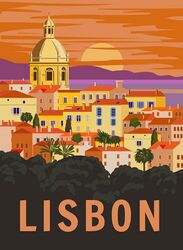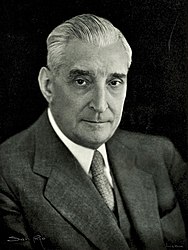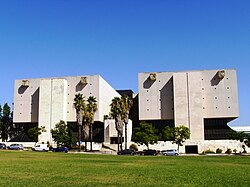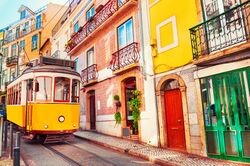
See all articles relating to: Portugal
Portugal emerged as a distinct kingdom in the 12th century under the reign of Afonso Henriques, who successfully unified various regional powers and established the House of Burgundy. Throughout the centuries, Portugal played a crucial role in the Age of Exploration, with famous figures such as Prince Henry the Navigator, Vasco da Gama, and Ferdinand Magellan leading pioneering maritime expeditions. These explorers expanded Portugal's influence and power, leading to the establishment of a global empire that stretched from Brazil to India and Africa. Although the nation experienced periods of decline, it has preserved its historical legacy and continues to have a notable impact on global culture and politics.
The districts of Portugal
Portugal is divided into 18 districts on the mainland and 2 autonomous regions that comprise the archipelagos of Madeira and Azores:
Portuguese history
The most important of Portugal’s earliest known settlers were the Cynetes who were literate and set up large stelae to record their achievements here in pre-Roman times. By then the Celts and the Lusitanians were also arriving in large numbers to Iberia. Beginning in the late third century BCE the Romans began conquering the Iberian Peninsula, but it was not until the first century BCE that this process was fully completed. Thereafter the region corresponding to modern-day Portugal was Romanized substantially until such time as the Germanic and Asiatic tribes that overran the Western Roman Empire in the fourth and fifth centuries CE arrived. The most significant of these in terms of Portugal were the Suebi who occupied much of what is now northern Portugal.[1]
The defining event of Iberia in medieval times was the invasion and conquest of most of the peninsula in the first twenty years of the eighth century by the Muslim Arabs and Berbers from North Africa. Yet some Christians in the north remained politically autonomous and over the centuries that followed they fought back and established their own kingdoms. One of these was the County of 'Portus Cale' or Portugal in the north of the country, which emerged in the ninth century. By the twelfth century it was significant enough for Afonso I to declare himself first King of Portugal in 1139. The Reconquista of Portugal from the Muslims was completed in 1249 under King Afonso III.[2]
Thereafter Portugal became known for its maritime exploration, with explorers voyaging down the coast of Africa and around the Atlantic. By the early fifteenth century this work was beginning to result in new discoveries and by the 1490s Portugal had found a sea route around Africa to the Indian Ocean. This formed the basis for its eventual empire, with Portugal setting off on a period of intense growth which saw it acquire colonies in Africa, India, the East Indies and even a port in southern China, led by colonial adventurers like Vasco da Gama. It also acquired Brazil in the Americas under the terms of the Treaty of Tordesillas.[3]

Portugal’s time as a great colonial power was short-lived. In the early 1580s the kingdom was subsumed into Spain when King Philip II of Spain became King of Portugal as well. Thereafter parts of Portugal’s empire were chipped away at by the Dutch who replaced them in the East Indies, while the British would soon become the predominant European colonial power in India. Yet the Portuguese retained many territories, notably Brazil where a gold rush began in the early eighteenth century, bringing renewed wealth and prosperity to Portugal, though of a kind which was confined to the monarchy, the nobility and the church.[4]
Despite these manifold advantages, Portugal’s economy at home remained incredibly underdeveloped and once Brazil became independent in the nineteenth century Portugal was increasingly one of Europe’s more impoverished nations. This would eventually lead at home to military coups and finally the dictatorship of Antonio de Oliveira Salazar between 1932 and 1968. Only with the Carnation Revolution of 1974 did Portugal begin to transition into a modern European state, one which belatedly granted independence to its remaining colonies in the mid-1970s, joined the European Union in 1986 and has progressed in recent times on the back of its tourism industry.[5]
See also:
Portuguese geography
Portugal is a mid-ranking European country by size. It is dwarfed within the Iberian Peninsula by its much larger neighbor, Spain, and is isolated to the western side of the peninsula. The country can be said to be divided into two distinct geographical regions in the north and the south, which are divided by the River Tagus on which sits the capital Lisbon. North of the Tagus there is a more temperate climate which is conducive to greater industrial activity and most of the country’s major cities like Lisbon, Oporto and Braga are found here. To the south of the Tagus is a warmer, drier region with an almost arid landscape in places.[6] This is the home of Portugal’s tourism industry and the coastlines of the Algarve are almost continuously lined with beach resorts and tourist towns. Portugal also comprises a number of external territories which are a legacy of the country’s colonial past, notably the Azores Islands and the island of Madeira. The greater majority of people in Portugal live in the north and central regions, with the wider metropolitan area of Lisbon alone containing nearly three million of the country’s 10.3 million people.[7]
See also:
Researching family history in Portugal

Portugal is a frustrating country for the study of family history and genealogy and for anyone looking to trace a Portuguese ancestor. On the one hand, the Portuguese government was one of the most advanced countries in Europe in compiling demographic records, compiling the first numerical census in 1260 and doing so roughly every hundred years up to the nineteenth century. However, these were enumeration censuses only, meaning they attempted to count the population of the Kingdom of Portugal, but they did not provide names or locations of each person. Contrastingly, Portugal was very late in compiling its first modern census by European standards, the first one giving names, geographical locations and other information only being compiled in 1864.[8] Parish censuses and other church records are otherwise useful for the earlier period. A good starting point is the Arquivo Nacional Torre do Tombo, the national archives of the country first established in 1378.[9] Unfortunately, church records are less centralized and are generally divided up into different archives located in different dioceses.
See also:
- Portuguese genealogy
- Portuguese immigration
- Portuguese emigration
- Portuguese archives
- Vital records in Portugal
- Birth records in Portugal
- Death records in Portugal
- Marriage records in Portugal
- Census records in Portugal
- Civil registrations in Portugal
- Church records in Portugal
- Newspaper records in Portugal
- Military records in Portugal
Portuguese ethnicity
The majority of the population is of Portuguese descent, while there are significant minority communities, including people of Brazilian, Cape Verdean and Angolan. Additionally, immigrants from countries such as Ukraine, China, and India have also settled in Portugal, enriching the nation's cultural tapestry. This blend of ethnicities reflects the country's long history of maritime exploration, colonialism, and its position as a European gateway, fostering a multicultural environment in contemporary Portugal.
See also:
Portuguese surnames

In Portuguese, surnames provide valuable insights into family history and genealogy, as they often convey information about an individual's ancestry, occupation, or place of origin. Historically, Portuguese surnames consisted of a combination of paternal and maternal surnames, with the latter often being dropped over time. These surnames can be patronymic, derived from a father's name; toponymic, indicating a geographic origin; or occupational, reflecting the bearer's profession. For example, the surname "Silva" means "forest," and the surname "Pereira" means "pear tree".
Examples of different Portuguese surnames: Silva, Santos, Costa, Pereira, Ferreira, Oliveira, Sousa, and Carvalho.
See also:
References
- ↑ https://www.ancient-origins.net/history-famous-people/suebi-0011234
- ↑ https://www.portugal.com/history-and-culture/the-history-of-portugal/
- ↑ https://www.worldhistory.org/Portuguese_Empire/
- ↑ https://www.jstor.org/stable/978703
- ↑ https://tribunemag.co.uk/2023/04/portugals-carnation-revolution-2
- ↑ https://www.countryreports.org/country/Portugal/geography.htm
- ↑ https://algarvedailynews.com/travel/21245-algarve-s-tourism-a-key-factor-in-the-region-s-economy
- ↑ https://repositorio.ul.pt/handle/10451/32094
- ↑ https://antt.dglab.gov.pt/